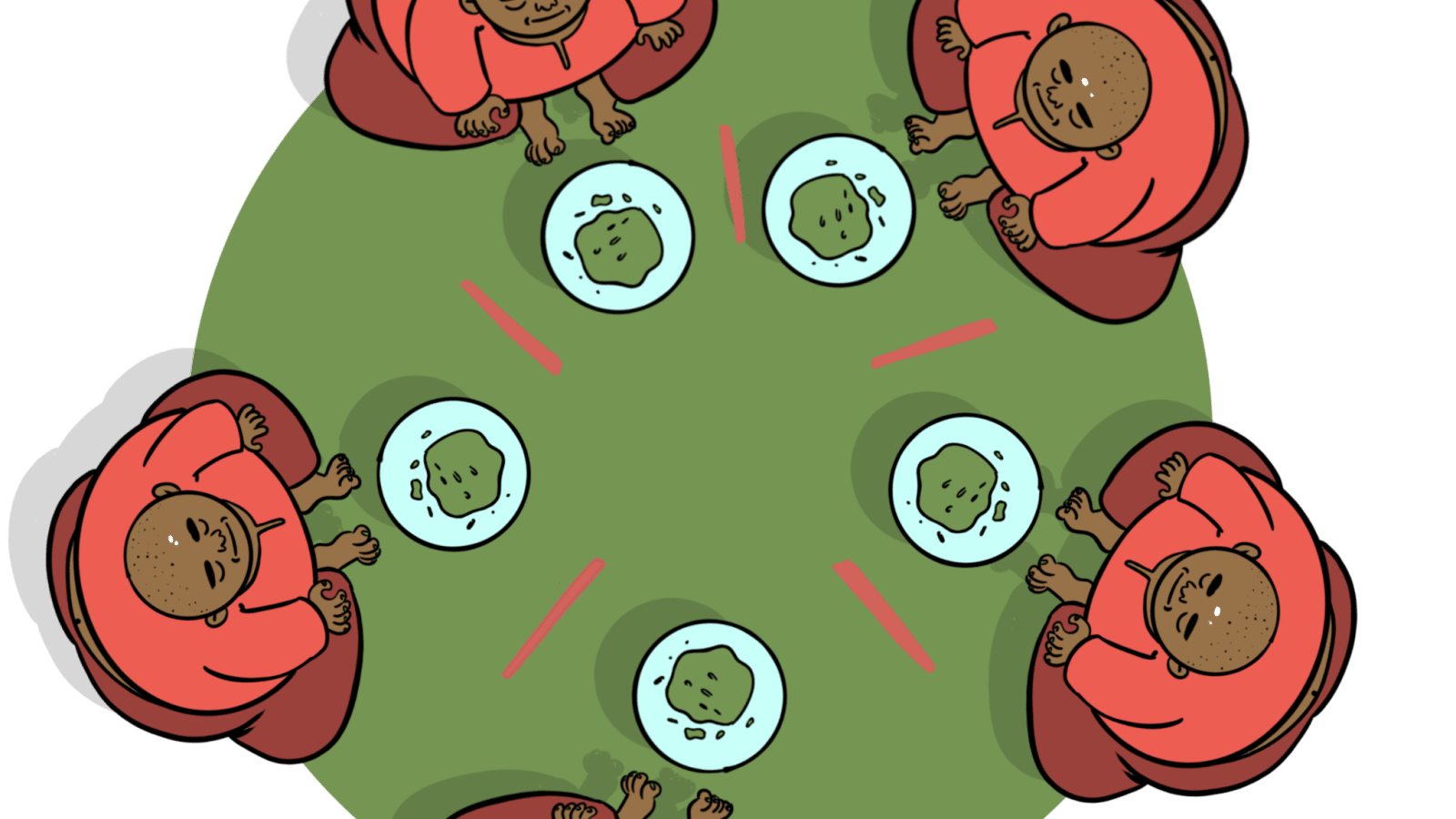The Dining Philosophers Problem is a famous problem in computer science used to illustrate common issues in concurrent programming. This project is coded in C, following the 42 Norm. It simulates a scenario where a number of philosophers are sitting at a round table doing one of three things: eating, thinking, or sleeping.
- Philosophers can be in one of three states: eating, thinking, or sleeping.
- Philosophers must eat with two forks, one for each hand.
- Philosophers must never be starving, and every philosopher needs to eat.
- Philosophers don't speak with each other and don't know when another philosopher is about to die.
- The simulation stops when a philosopher dies.
Each program should have the following options:
number_of_philosophers: Number of philosophers and also the number of forks.time_to_die: Time in milliseconds. If a philosopher doesn't start eating within 'time_to_die' milliseconds after starting his last meal or the beginning of the simulation, they die.time_to_eat: Time in milliseconds. The time it takes for a philosopher to eat.time_to_sleep: Time in milliseconds. The time the philosopher will spend sleeping.[number_of_times_each_philosopher_must_eat](optional): If specified, the simulation will stop after all philosophers have eaten at least this many times. If not specified, the simulation will stop only at the death of a philosopher.
include/: Contains the header filephilo.h.src/: Contains the main source filemain.c.utils/: Contains utility files:check_args.c: Code for checking command line arguments.check_end_simulation.c: Code for checking the end conditions of the simulation.create_threads.c: Code for initialize the philos data and creating the threads.ft_atoi.c: Custom implementation of theatoifunction.ft_error.c: Error handling functions.ft_state.c: Function that print the state of the philosophers.moment.c: Functions related to time management.save_args.c: Code for saving command line arguments.simulation.c: Code for simulating the dining philosophers scenario.
Makefile: Build automation file.
A Mutex (short for mutual exclusion) is a synchronization primitive used in concurrent programming to prevent multiple threads from concurrently accessing shared resources (e.g., variables or data structures) that might lead to race conditions. In this project, mutexes are used to ensure that only one philosopher can access a fork at a time, preventing conflicts.
A thread is a unit of execution within a process. Unlike processes, which have their own memory space, threads share the same memory space and resources of their parent process. This makes threads more lightweight than processes and allows them to communicate more efficiently. In this project, multiple threads are used to simulate the philosophers.
Share the same memory space. Are more lightweight than processes. Are faster to create and manage. Have less overhead for communication between them.
Have their own memory space. Are heavier and more resource-intensive. Have more overhead for communication between them.
A data race occurs in concurrent programming when two or more threads or processes access a shared resource (like a variable) simultaneously, and at least one of them is writing to it. This can lead to unpredictable behavior and bugs. In this project, the use of mutexes helps prevent data races by ensuring exclusive access to shared resources like forks.
make./philo number_of_philosophers time_to_die time_to_eat time_to_sleep [number_of_times_each_philosopher_must_eat]The Dining Philosophers Problem was originally formulated by Edsger Dijkstra. Special thanks to 42 and the contributors to this project.
This project is licensed under the MIT License.

